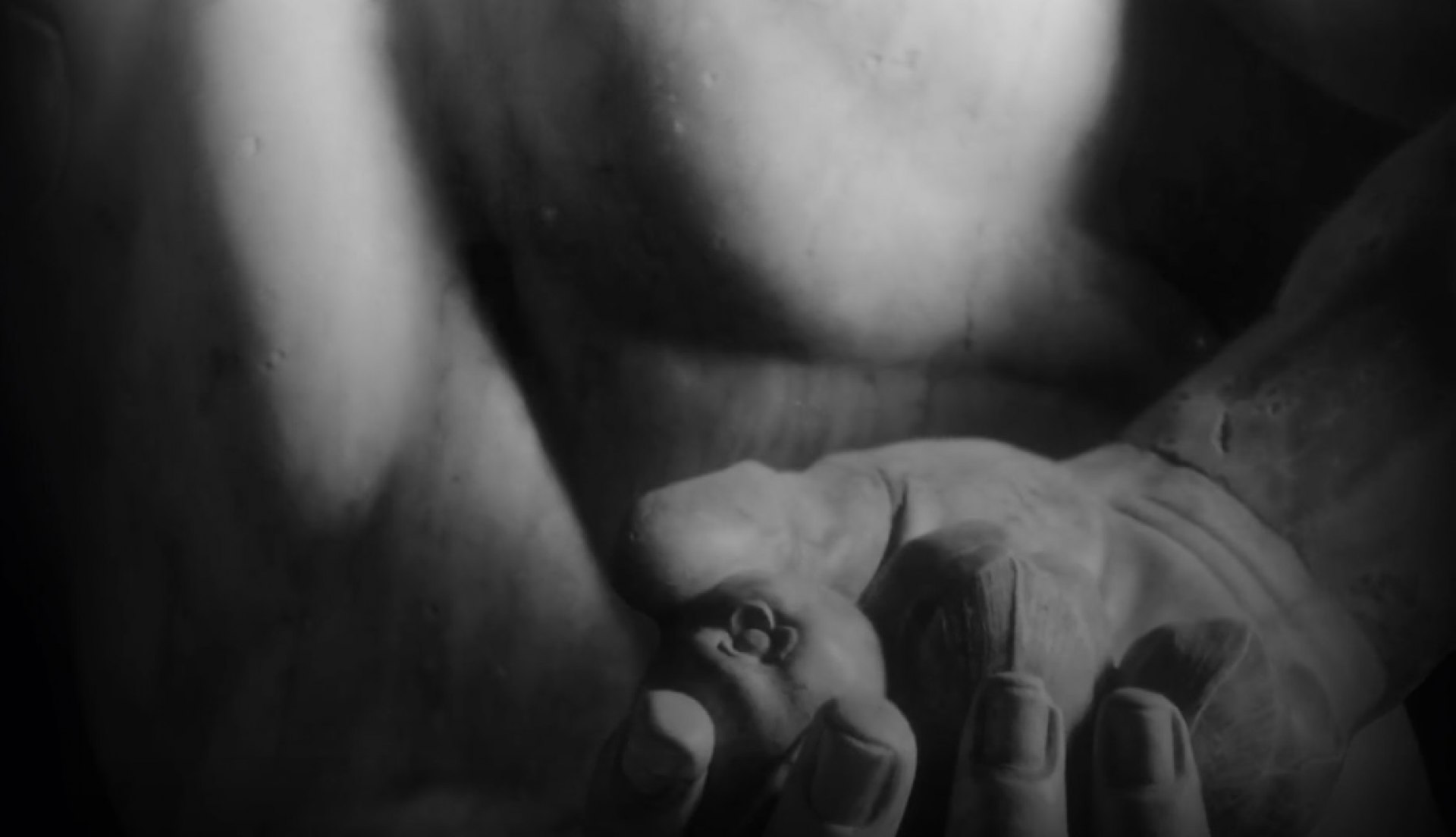Ercole amante
Mo | Tu | We | Th | Fr | Sa | Su |
Duration : 3h15 with 1 interval
Language : Italian
Surtitle : French / English
Opening:
First part95 min
Intermission25 min
Second part75 min
End
Eight years after the success of Les Indes galantes, conductor Leonardo García Alarcón returns to the Paris Opera with a gem: a score by Antonia Bembo, an 18th century composer whose tumultuous life resembles a novel.
Fleeing a violent husband, this Venetian sought refuge at the court of Louis XIV, where she received the king’s protection. It was in France that she forged a personal style, straddling Italian and French culture, before composing her opera Ercole amante in 1707, based on the libretto previously used by her master Francesco Cavalli.
Never before staged, this Hercules in love, marked by harmonic originality and outstanding vocal virtuosity, is making its repertoire debut at the Paris Opera.
Netia Jones explores the baroque work, full of gods and supernatural elements, and reveals its modernity: that of a powerful but ageing man incapable of accepting a woman’s refusal to consent.
Plot
Prologue
A chorus of rivers gathers to celebrate the wedding of Louis XIV and Maria Theresa of Habsburg, led by Cinzia, the personification of the Moon. Cinzia, to entertain the audience, begins to tell the story of Hercules and his marriage to Beauty, a precursor to the wedding between the Sun King and the Infanta of Spain (Oh Gallia fortunata).
Act 1
Hercules, despite being married to Deianira, is in love with Iole, daughter of King Eutyrus, who fell victim to Hercules when he refused to give him his daughter. The girl, a prisoner in the hero's house, hates her father's murderer and rejects his declarations of love, causing Hercules to be consumed by torment as he complains about the cruelty of love (Come si beffa Amore). His laments are interrupted by Venus, who, feeling unjustly accused, decides to help Hercules in the conquest of Iole.
The conversation between Venus and Hercules is overheard by Juno: the goddess, already an enemy of the hero for a long time, is seething with rage, as the protector of marriage, and is intent on safeguarding the union between Hercules and Deianira, and prepares to go to the cave of the god of Sleep, to ask for his help.
Act 2
Unbeknownst to Hercules, Iole has fallen in love with his son Hyllo, and has found consolation in his love for the death of her father (Amor ardor più rari). A page of Hercules interrupts the conversation between the two, and invites Iole to join his master in the garden: this news upsets both the girl, and Hyllo, and Deianira, who has long suspected her husband's infidelity, consoled in vain by her confidant Licco.
Act 3
In the garden of Hercules' palace, Venus has magically created a chair that will change the feelings of hatred that Iole feels for Hercules into love. Hercules awaits the arrival of the girl, announced by the page, from whom, however, he learns that she was in an intimate conversation with Hyllo.
Iole arrives, and always maintains her disdainful tone towards her father's murderer, until she feels her feelings change once she sits on the enchanted chair: hearing his beloved call Hercules "love", Hyllo reveals himself, reproaching her for infidelity; Hercules, furious, chases his son away. Then Juno intervenes, who with the help of Sleep puts Hercules to sleep and awakens Iole from the spell of the enchanted chair: the goddess, moreover, gives an enchanted sword to the girl with which to avenge her father's murder, and disappears. Hyllo returns again to foil the attempted murder and disarms Iole, but Hercules is awakened at that moment by Mercury, sent by Venus to help him, and seeing the weapon in the boy's hand decides to punish him for the attempted murder. Deianira rushes to her son's aid in vain, only succeeding in unleashing Hercules' wrath against her as well: only Iole manages to intercede for the two with the hero, agreeing to her marriage on the condition that the lives of both are spared. Hercules expels Deianira from the palace and has Hyllo imprisoned in a tower built on a promontory overlooking the sea (Son, you prisoner?).
Act 4
Hyllo, a prisoner, receives from the page, who arrived by boat, a letter from Iole in which she informs him of her marriage to his father and begs him to forgive her for having given in (Ahi che pena è gelosia). Hyllo, desperate, sends the page back, who however sinks into the stormy sea, and, to seek death, dives from the tower into the waves. Juno intervenes and warns Neptune, who saves the boy from death in the water and delivers him to the divinity.
While Deianira laments her exile (And what worse are the fates for me?), Iole cries on her father's grave: suddenly the tomb opens and the shade of Eurytus appears, still furious because her murder is still unavenged. The news of Hyllo's death at sea, brought by Deianira herself who witnessed the scene, throws Iole into despair: Eurytus returns to the underworld to take revenge on Hercules with the ghosts of his victims.
Faced with the desperation of the two women, Licco suggests to Deianira that Hercules wear the robe that he had soaked in the blood of the centaur Nessus, which would have the power to bring back the hero's ancient love for his wife (Una dropa di spene).
Act 5
While in the underworld Eutyrus calls to him the shades of Hercules' victims, on earth the wedding between the hero and Iole is being prepared. The girl, on Licco's advice, offers Hercules the robe soaked in the centaur's blood, but once he puts it on, the hero begins to moan, feeling his flesh being torn and burned. Distraught by the pain, Hercules decides to build a funeral pyre where he will die, so that his pain will be hidden from the world (Ma qual pungente arsura).
Distraught by the death of Hercules, Deianira, Iole and Licco witness the return of Hyllo, who tells them that he was saved thanks to the intercession of Juno: the goddess appears, announcing Hercules' ascension to heaven, and the wedding between him and Bel
Program and cast
Opera in five acts (1707)
Creative team
Antonia Bembo: Music(v. 1643-v. 1715)
Francesco Buti: Libretto
Leonardo García-Alarcón: Conductor
Netia Jones: Direction, set, costume design, video
Fabiana Piccioli: Lighting design
Maud Le Pladec: Choreographer
Fábian Schofrin: Dramaturgy
Thibaut Lenaerts: Chorus Master
Cast
Andreas Wolf: Ercole
Julie Fuchs: Giunone
Ana Vieira Leite: Iole
Deepa Johnny: Dejanira
Marcel Beekman: Licco
Alasdair Kent: Hyllo
Sandrine Piau: Venere, Bellezza
Théo Imart: Paggio
Teona Todua: Pasithea
Alex Rosen: Nettuno, L'Ombra di Eutyro
Orchestre Cappella Mediterranea
Choeur de chambre de Namur
Paris Opera Bastille
RM Europa Ticket GmbH is an officially accredited ticket reseller of/by Opera National de Paris.
Agency number: 4848428
Opéra Bastille
A great modern theatre
The Opéra Bastille is the work of the Canadian-Uruguayan architect Carlos Ott, who was chosen in November 1983 after an international competition that attracted entries from some 1,700 architects. The theatre was inaugurated on July 13th 1989.
Its architecture is marked by transparent façades and by the use of identical materials for both the interiors and the exteriors.
With its 2,700 acoustically consistent seats, its unique stage facilities, its integrated scenery, costume and accessory workshops, as well as its numerous work areas and rehearsal rooms, the Opera Bastille is a great modern theatre.
Stage facilities
Orchestra pit, mobile and adjustable, can be covered; at its largest it can house 130 musicians
Main stage, 45 m high, 30 m wide, 25 m deep, made up of 9 elevators allowing several levels to be created and supported by three main elevators, which bring scenery up from below stage
Clearing zones, 4 storage areas with the same dimensions as the stage
Backstage area, with its scenery turntable
Circulation area, scenery temporarily stored between the stage, workshops and rehearsal stage
Rehearsal stage, the Salle Gounod, with its orchestra pit and dimensions identical to those of the main stage
The building
Area at ground level: 22,000 m²
Floor area: 160,000 m²
Total height: 80 m (including 30 m below street level)
The auditoriums
The main auditorium
Area: 1,200 m², 5% of the total for the building
Dimensions: 20 m high, 32 m deep, 40 m wide
Number of seats: 2,703
Materials: blue granite from Lannelin in Brittany, pearwood from China, glass ceiling
The amphitheatre
Area: 700 m²
Depth : 21.4 m
Number of seats : 450
Materials: white breccia marble from Verona, staff ceiling
The Studio
Area: 280 m²
Depth: 19,5 m
Number of seats: 237
Materials: white breccia marble from Verona and pearwood

 EN
EN DE
DE IT
IT FR
FR ES
ES RU
RU JP
JP RO
RO
 Seating plan
Seating plan 